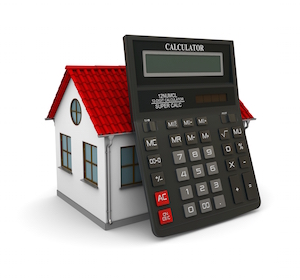Self Managed Super Fund – A Definite Advantage
A Self Managed Super Fund offers a definite advantage when building a residential investment portfolio.
I attended the Rotary Home Show at Moranbah last weekend and there was a definite positive vibe in the air. For the last few years there has been an air of doom and gloom, now the mood is positive and upbeat.
 I think that the increase in the price of coal certainly helps and a lot of the old timers have taken voluntary redundancy, meaning we now have a lot of new younger people in the Moranbah community.
I think that the increase in the price of coal certainly helps and a lot of the old timers have taken voluntary redundancy, meaning we now have a lot of new younger people in the Moranbah community.
We have a question from a listener to our radio segment that visited our stand at the home show. She said that she did not get a chance to speak to me personally but overheard a conversation regarding the possible projected returns on a Self Managed Super Fund (SMSF) over a 10-year period.
She does not know if she misheard but thought I said that with a SMSF this person could turn $150,000 into $750,000 in 10 years without personally contributing anything.
And that IS exactly what I said.
So how can someone with a Self Managed Super Fund achieve this?
If a client comes to me to set up a SMSF, I would build them a new residential investment property that would cost approximately $500,000. He or she would need their Self Managed Super Fund to provide a 1/3 deposit i.e. $150,000 and we would borrow $350,000.
Initial equity is $150,000.
If they borrowed this $350,000 Principal & Interest over 30 years, in 10 years’ time they would still owe about $250,000, but with inflation, the $ value of the house could well have doubled to say $1 million.
In other words In 10 years …
| Now | 10 years | |
| $ Value of the house | $500,000 | $1million |
| Amount owed | $350,000 | $250,000 |
| Equity | $150,000 | $750,000 |
| Own contributions | ZERO |
That’s right, three-quarters of a million dollars in equity, in 10 years, without contributing anything themselves because their employee contribution of 9.5% covers all outgoings and repayments.
This will work for any couple with a combined Super of around $220,000 and an income of $90,000 per annum.
Read more articles like this?
Visit the Self Managed Super Fund Section on our blog.
Download your Free Residential Investment Checklist.
Are there other advantages?
 At this stage, you are still able to pull your Super out and put it into a Self Managed Super Fund, but the time is coming when the Government will only give your Super back as a form of pension.
At this stage, you are still able to pull your Super out and put it into a Self Managed Super Fund, but the time is coming when the Government will only give your Super back as a form of pension.
The total cost to set up a Self Managed Super Fund is only $7,500. The only personal outlay is a deposit of $3,000, which is subsequently refunded from the fund. There is no cost or obligation to have a consultation with me regarding self-managed super or investment strategies. Just contact our office to schedule your free, no-obligation consultation.
Steve Taylor
If you prefer to listen here is my radio interview on Emerald 4HI:
At the helm of Steve Taylor & Partners, Steve Taylor has been delivering expert advice and product knowledge to clients for over 30 years. Steve Taylor & Partners provide individuals, couples and families with the right strategies to create wealth and change their lives with solid bricks and mortar.
DISCLAIMER
Steve Taylor & Partners blog is opinion and not advice. Readers should seek their own professional advice on the subject being discussed. The figures stated in this article were accurate at the time of publication. For up to date figures, please contact our office.
Fill and Submit this form for your Free Residential Checklist.

